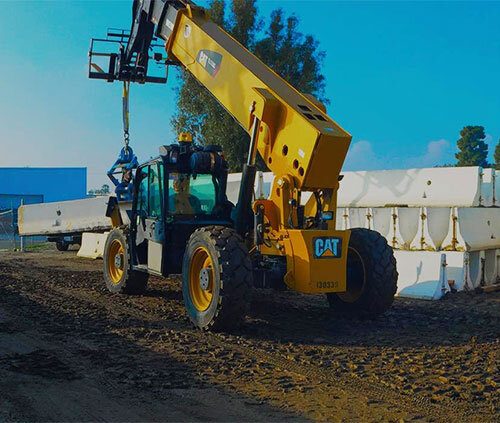Mini Excavator Rental: Compact Machines for Strict Spaces
Mini Excavator Rental: Compact Machines for Strict Spaces
Blog Article
Optimize Your Spending Plan by Comprehending the Prices Associated With Construction Tools Leasings
Recognizing the complete extent of expenses linked with building and construction equipment rentals is essential for optimizing your budget plan. What approaches can be used to efficiently take care of these costs and ensure a more efficient rental experience?
Review of Rental Costs
When considering building and construction equipment rentals, recognizing the connected expenses is extremely important for effective budgeting and job preparation. Rental costs can vary significantly based on several factors, consisting of devices type, period of leasing, and place. The first rental charge usually reflects the equipment's market demand and its associated operational capacities, influencing the general cost.
In enhancement to the base rental price, secondary prices might emerge, such as transportation fees, gas surcharges, and maintenance charges. It is vital to account for these added costs to properly examine the total price of renting devices. Furthermore, the rental period can impact prices; longer services might get approved for discounted rates, while temporary services could sustain greater everyday costs.

Break Down of Rental Rates
A detailed understanding of rental rates is important for specialists and job supervisors intending to optimize their spending plans. Rental prices for construction equipment usually contain a number of components, including base prices, time-based charges, and use fees.
Base rates are the core fees related to the leasing of the equipment, often figured out by the kind and dimension of the equipment. These rates can differ considerably, affected by aspects such as equipment demand, accessibility, and local market fads. Time-based fees, which might be daily, weekly, or monthly, serve to fit different project timelines and rental durations.
In addition, rental rates may include use fees, which apply when tools is made use of beyond a defined threshold, making sure that the rental company can account for wear and tear. Seasonal demand changes can likewise affect rental prices, with peak construction periods typically regulating greater costs.
Moreover, comprehending the rental company's plans regarding upkeep and insurance can provide further understanding into the total price framework. By assessing these components, service providers can make educated choices, making sure the selection of rental equipment aligns with both task requirements and budget plan constraints.
Extra Fees to Take Into Consideration
Recognizing the complexities of additional costs is critical for service providers to manage their total rental expenses successfully. Past the conventional rental rates, different additional charges can significantly affect the complete cost of tools rental. These charges frequently include delivery and pickup costs, which can differ based upon distance and logistics entailed in transporting the devices to and from the work website.
In addition, some rental firms might enforce gas surcharges other if the tools is returned with much less gas than when leased. It is additionally necessary to understand prospective cleansing fees, specifically for specific tools that needs extensive maintenance after use.

Thoroughly reviewing the rental contract and clearing up these extra costs ahead of time can aid professionals prevent unanticipated costs and make sure that budget plans remain intact throughout the task lifecycle.
Repair And Maintenance Expenses
Normal upkeep and fixing expenses are frequently overlooked aspects that can considerably affect the overall expense of building and construction equipment leasings. When renting equipment, it is essential to take into consideration not just the rental charges however likewise the prospective expenses connected with keeping the machinery in ideal operating condition.
Many rental companies include standard upkeep as component of the rental dig this agreement; nevertheless, a lot more unanticipated break downs or comprehensive repair services can result in additional expenditures. It's vital to assess the rental contract meticulously to recognize what upkeep services are covered and what duties fall on the tenant.
Furthermore, tools that is not well-maintained can bring about ineffectiveness on the task site, possibly triggering delays and increasing project costs. To alleviate these threats, it is a good idea to conduct routine assessments and maintain open interaction with the rental supplier concerning any concerns that occur during use.
Insurance and Obligation Costs
Insurance policy and obligation prices are important parts that can substantially impact the general expenditure of building devices services (heavy equipment rental). These prices make sure that both the rental firm and the customer are secured from potential economic losses emerging from crashes, damage, or burglary during the rental duration

Furthermore, customers must know any type of deductibles or exemptions in the insurance coverage plan, as these can affect potential out-of-pocket expenses. Recognizing the terms of any type of insurance policy protection is crucial to prevent unforeseen prices. Inevitably, budgeting for insurance and obligation expenses can help ensure a smoother rental experience and shield against monetary dangers connected with building and construction jobs.
Verdict
To conclude, a thorough understanding of the prices related to building equipment rentals is vital for reliable budget management. By examining rental rates, added fees, upkeep expenses, and insurance policy individuals, needs and companies can lessen unforeseen expenses. This critical method not only boosts cost-effectiveness but also makes certain that jobs proceed smoothly and effectively. Eventually, educated decision-making pertaining learn the facts here now to equipment services adds to the total success of construction endeavors.
Rental prices can vary significantly based on numerous variables, consisting of tools kind, period of service, and area (boom lift rental). The rental duration can impact rates; longer leasings may certify for discounted rates, while short-term rentals could sustain greater day-to-day charges
By carrying out comprehensive research and engaging with respectable rental companies, professionals can efficiently navigate the intricacies of rental rates, inevitably optimizing their economic resources.
Beyond the typical rental rates, various supplemental fees can significantly affect the total price of equipment service. Rental companies usually provide liability insurance coverage that covers injuries to 3rd parties or damage to property, while tools damages insurance can cover the expense of repair work or replacement if the rented equipment is harmed.
Report this page